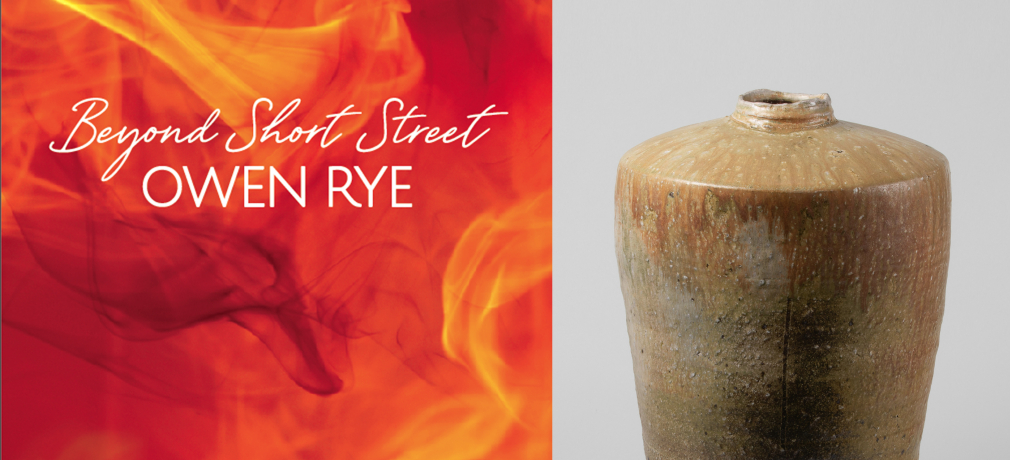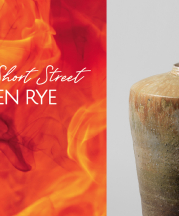 At an age where the candles no longer fit on the birthday cake, an autobiography may be looked at as pure nostalgia. I prefer to regard it as review. How did I get here? Let me think about that for the next few hundred pages. – Owen Rye
At an age where the candles no longer fit on the birthday cake, an autobiography may be looked at as pure nostalgia. I prefer to regard it as review. How did I get here? Let me think about that for the next few hundred pages. – Owen Rye
The scenes described in this warmly written, sensitive, and engaging memoir could have taken place in any small town during this era. But ceramicist Owen Rye brings his reality to life for us as he fondly and not-so-fondly describes the people, places, and experiences that have influenced his rich and illustrious – albeit humble – life. Sprinkled with facts, observations, self-deprecating comments, acknowledgments of mistakes, descriptions of love and loss, and lots of questions, I found this memoir to be an easy read and an engaging journey. But as Owen begins the book, he reminds the reader that “this is not a book about ceramics.” It is about his life and how he coped with “changes and diversions, large and small, planned or entirely unimagined, and how one person dealt with all of that.”
With a current population of about 900 and much smaller back then, Owen’s hometown of Berridale could be transplanted almost anywhere in the Western world. On the experiences of his upbringing, he reminisces: “One advantage of being a child of the whole town was to go almost anywhere and receive a friendly word.” There were some dangers: “being bitten by a snake, chased by a bull, or accosted by a few local child bullies,” but there were more townsfolk who looked after him than endangered him. He could identify who drove by because of the sound of the individual vehicles, which changed as the town grew.
In Berridale, a rural town, the milk came from a cow, and the bread came from the baker’s: “Hot bread was placed outside George Daniel’s bakery door at four am along with a money tin for payment. Nobody considered the money might be stolen.” Owen expresses more warm appreciation for local characters: “My mother kept almost everything that came into the house, . . . Each time she filled a shed to overflowing, my father built a new shed.” He relates a story about an eccentric local farmer, another “collector” of objects. “In the 1970s, he bought the remains of an old Land Rover from my brother. When I asked him what he was going to do with the small pile of junk, he said: ‘It might be good for something even if it’s no use for anything.’”
... Share
Share

